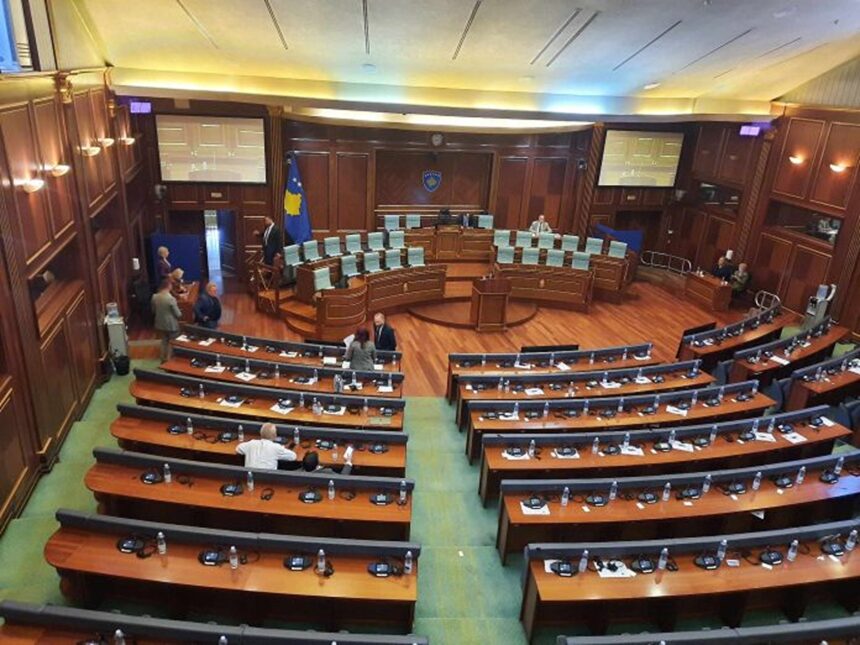Political analyst Albert Krasniqi explained how the budget can be legally approved under the current circumstances, where new institutions are not being formed.
He noted that, at present, sessions of the Assembly can only be convened at the request of the mandate holder appointed by the President, and that convening a new session should be exclusively for voting on the Government.
“No other extraordinary session, with any other agenda, can be held during this period. Consequently, parliamentary committees cannot be established, nor can draft laws that require regular cooperation between the legislative and executive branches be reviewed or approved,” he stated.
Regarding the acting government, he added that its decision-making powers are currently limited and that it cannot even propose the budget law.
Krasniqi stated that the only legal and constitutional option for approving the budget is for political parties—especially the opposition—to agree on forming a temporary technical government, which would have a limited mandate solely to approve the Annual Budget and the EU Growth Plan Agreement.
Full Summary of Krasniqi’s Analysis:
1. Assembly Competencies Between Constitution and Government Formation
From the moment the new Assembly is constituted until the Government is elected, sessions can only be convened at the request of the mandate holder appointed by the President for forming the Government, and their purpose is exclusively for voting on the Government. No other extraordinary session with any other agenda can be held during this period. Consequently, parliamentary committees cannot be established, nor can draft laws that require regular cooperation between the legislative and executive branches be reviewed or approved. A legislature that can be dissolved if the Government is not elected does not need working bodies, as its only task at this stage is to elect the Government.
2. Legal Limitations for Acting and Outgoing Governments
Article 31 of the Law on Government defines the limitations for a government in resignation. According to paragraph 5 of this article, these limitations also apply to the acting government, i.e., the government that has completed its four-year term. Among these limitations (paragraph 1, subparagraph 1.2) is the prohibition on approving draft laws. Paragraph 2 of the same article makes a single exception for a government in resignation, allowing it to propose the approval of the Annual Budget to the Assembly. No such exception exists for the acting government, meaning it cannot propose the budget law or any other draft laws.
3. The Only Possibility for Budget Approval
The only legal and constitutional option for approving the budget is for political parties—especially opposition parties—to agree on forming a temporary technical government. This government would have a limited mandate solely for approving the Annual Budget and the EU Growth Plan Agreement. Such a government would ensure institutional functionality, prevent financial blockage of the state, respect the separation of powers and democratic legitimacy, prevent abuse of public funds for clientelistic purposes during election campaigns, and prevent deliberate delays in the constitution process following upcoming elections.







